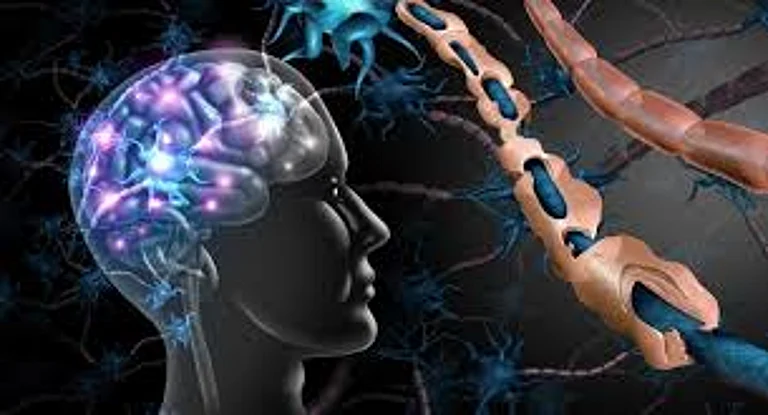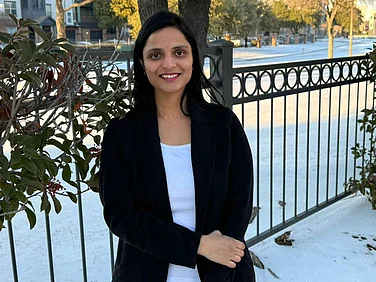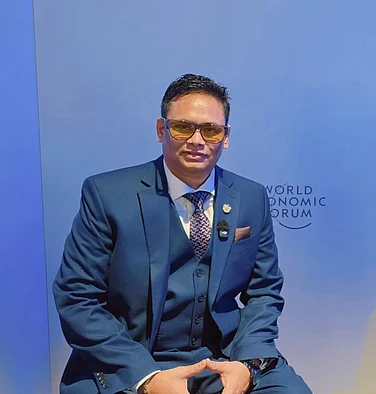In today’s world, where the reliability of digital platforms underpins everything from healthcare and education to finance and communication, the question of how to build cloud systems that can adapt, repair, and optimize themselves is no longer theoretical. For Karthik Kudithipudi, a researcher and innovator whose work bridges artificial intelligence and cloud computing, this challenge has been at the heart of his career. His contributions in generative AI, self-healing systems, and autonomous digital infrastructures are now seen as critical pathways toward creating the resilient backbone of the digital economy.
Kudithipudi, affiliated with Central Michigan University, has long been drawn to the intersection of AI and practical engineering. His approach is defined by a conviction that research must move beyond theory into application. “For me, research is not just about discovery—it’s about usability,” he explained during a recent discussion. “If a framework cannot be applied to make systems stronger, faster, or more reliable, then it hasn’t fulfilled its potential.” That philosophy is reflected in the direction of his most cited works, which combine deep technical insight with direct relevance to how businesses, governments, and institutions manage digital infrastructure.
One of his most recognized publications, “Generative AI for Cloud Infrastructure Automation” (2020), has been cited more than twenty times—a notable achievement in a rapidly evolving discipline. In this research, Kudithipudi explored how generative models could be embedded into automation pipelines, not only executing repetitive cloud operations but also anticipating shifts in demand and restructuring workflows accordingly. The insight was timely. As organizations around the world expanded their reliance on cloud environments, they found themselves struggling with the complexity of distributed systems. Kudithipudi’s framework suggested a way forward, demonstrating how AI could “democratize” cloud operations, allowing for a degree of adaptability that human operators alone could not achieve.
He explained the motivation behind this work in straightforward terms: “Automation has always been central to cloud operations. What generative AI offers is not just speed, but adaptability. It learns from dynamic environments, anticipates needs, and responds to change in ways that traditional scripts never could.” That framing—AI not as a replacement but as a learning collaborator—has resonated widely among scholars and practitioners alike.
While efficiency is one dimension, resilience is another. Kudithipudi has been particularly influential in exploring how AI can allow systems to heal themselves in real time. His 2024 paper, “AI-Powered Self-Healing and Fault-Tolerant Cloud Infrastructures,” addressed one of the most pressing challenges in global technology management: how to keep critical systems running without interruption. The framework he developed describes intelligent agents capable of identifying anomalies before they escalate and initiating corrective action automatically. The significance is clear when applied to sectors where downtime is not merely inconvenient but potentially devastating—such as healthcare monitoring systems, financial exchanges, or emergency communications.
As Kudithipudi observed, “The goal is not just to react faster to failures. It’s to prevent them from manifesting at all. A truly self-healing system reduces the dependency on human operators, allowing experts to focus on strategic innovation rather than firefighting.” The comparison to biological systems—self-correcting, adaptive, resilient—has been a powerful way to convey the promise of this research to broader audiences.
His work has also extended into the development of autonomous AI agents for cloud optimization, outlined in his 2023 contribution, “Autonomous AI Agents for Cloud Infrastructure Engineering and Optimization.” These agents, as he describes them, function like “tireless architects,” redistributing workloads, tuning performance, and balancing competing priorities across complex environments. What distinguishes Kudithipudi’s approach is not only the technical depth but the insistence on forward-looking design: systems that can anticipate tomorrow’s needs as much as today’s.
This steady stream of influential publications has earned him peer recognition through citations and scholarly uptake, a metric that immigration evaluators and academic peers alike view as evidence of originality and significance. Yet, for Kudithipudi, the real validation comes from the possibility of impact. His research is not designed to remain within academic journals; it is intended to guide the future of infrastructure that supports daily life across industries.
Perhaps most compelling is the way Kudithipudi situates his work within a larger context. He has spoken about the role of infrastructure not just as a technical necessity but as a national imperative. “The strength of a nation increasingly depends on the resilience of its digital backbone,” he explained. “Education, healthcare, finance—all of these sectors rely on uninterrupted digital services. By making cloud infrastructure self-healing and intelligent, we’re not just solving technical problems—we’re safeguarding societal functions.”
Looking ahead, Kudithipudi envisions a world where cloud systems evolve into fully autonomous ecosystems. He points to the potential convergence of generative AI, reinforcement learning, and cybersecurity as the next frontier, creating infrastructures that are not only efficient and resilient but also deeply intelligent. His ongoing projects aim to refine these frameworks, pushing closer to a model where cloud environments function as self-sustaining organisms rather than human-managed tools.
Through his research, publications, and influence, Kudithipudi has established himself as a recognized authority in AI-driven infrastructure. His contributions are both measurable—in the citations and peer recognition they have received—and meaningful in their potential to transform how nations and organizations safeguard their digital future. In combining scholarly rigor with visionary application, he continues to shape the contours of an emerging field that will define the resilience of global systems for years to come.


























